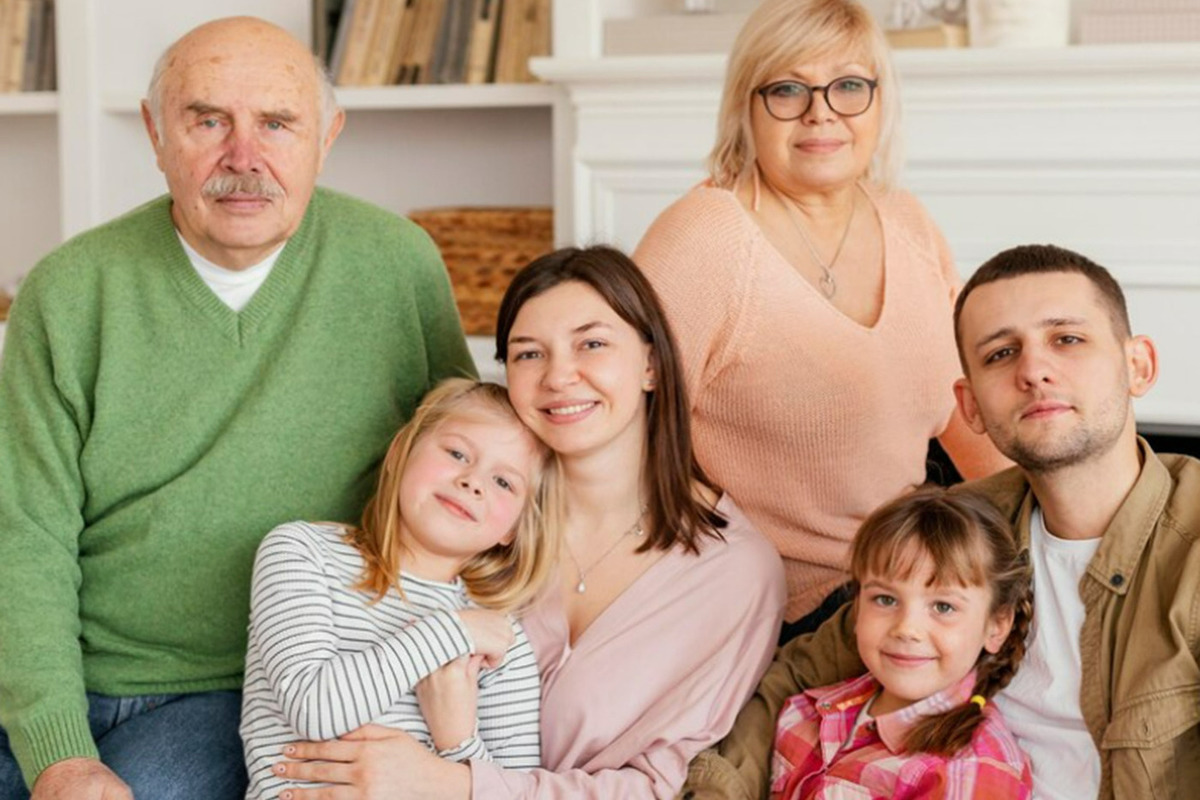The controversial impact of grandparents on the mental health of mothers has been revealed
[ad_1]

“Mothers are less likely to buy antidepressants if their own parents are under 70 years of age, work, and do not have serious health problems,” said the study’s lead author, Dr. Niina Metsa-Simola, a lecturer and researcher in demography at the University of Helsinki in Finland.
CNN reports that researchers followed 488,000 mothers of young children in Finland between 2000 and 2014, according to a report published Thursday in the journal Population Studies.
The research team collected demographic data, including whether the mother had a partner or was separated, as well as the age, health, distance and employment status of both maternal and paternal grandparents.
The link between access to grandparents’ help and lower levels of antidepressant use was particularly strong among mothers who were separated from their partners, according to the study.
“Grandparents are an important source of support for families with children, and support from others is known to protect people from depression,” says Metsa-Simola. “As the link between maternal depression and adverse child outcomes is well established, support is important not only for the well-being of mothers, but also for the growing number of children living with separated mothers.”
It’s not surprising that greater access to support was associated with fewer purchases of antidepressants, given how important community is to parenting, says Lynn McIntyre, a perinatal psychotherapist and researcher in the AFIN research group at the Autonomous University of Barcelona in Spain.
It may be less common in American society for intergenerational cohabitation and more common for children to move away from their parents to start their own families, McIntyre points out.
“The fact that we live differently now and that more women are more educated and work doesn’t mean that that has eliminated our need for really strong, dense social support,” she said.
There are cases where grandparents could have a negative impact on the mother’s health.
The study found that antidepressants were most often used by mothers whose parents or in-laws were older, in poor health, or living far away. The researchers hypothesized that grandparents were unable to provide support to the parent in these situations, and instead the parent likely faced increased stress to care for the elderly.
Metsa-Simola noted that the study was conducted in Finland, which has widespread access to health care and child care, so the support families receive from older generations may extend beyond those needs.
These other needs might look like: needing someone to talk to, getting reinforcement when you need to run out of the house when there’s no one to take care of your baby, or, in McIntyre’s case, needing to knock on the door at 3 a.m. when the thermometer isn’t showing. The child’s temperature is clearly high,” she said.
While such support may come from grandparents, families who don’t receive such help are not at a loss, she said.
“Social support has to come from somewhere,” adds Lynn McIntyre. “Does it come from aunts and uncles? Does it come from friends? Does it come perhaps from the systems, communities and groups that we create?”
When McIntyre moved into a new house, she said her usually more reserved husband asked if they could invite all the neighbors.
She said she expressed surprise, but he explained that these neighbors will provide places for their children to play, will walk them through school systems and may be there in times of need – so they had better make those connections.
Getting out into the community is one way to build a community that will help raise children, she said. Even the Internet can help. Chatting in social media groups with other parents and caregivers may not provide you with the support you need, but it can help you connect with friends or parenting groups in your area, McIntyre notes. “You have to be a little more proactive about it,” she said. “It’s almost like a date.”
[ad_2]
Source link








